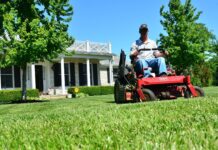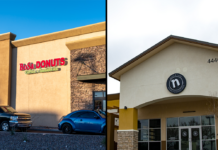Maricopa-based Yulex® Corporation, the United States Department of Agriculture’s Agricultural Research Service (USDA-ARS), and Mendel Biotechnology recently signed an agreement to develop and field test proprietary guayule (why-YOU-lee) plants with enhanced natural rubber latex yields and increased biomass.
Yulex Corporation is very involved in the clean technology industry in the U.S. southwest based on guayule, a versatile desert plant that has become a commercial source of bio-based rubber latex, and a cellulosic feedstock for bioethanol and other alternative energy production.
“Launching this program with Mendel and the Agricultural Research Service will greatly accelerate the achievement of our long term goals which include the ability to provide an economical rubber product on a global basis while providing a regional solution for ethanol production in the Southwest United States,” said Jeffrey Martin, CEO and president of Yulex Corporation. “We expect to see a vast improvement in guayule rubber yields which will allow guayule production fields to produce significantly more rubber per acre than rubber plantations in Southeast Asia.”
The goal of collaboration is to increase the amount of latex, rubber, and biomass the plant produces. Over the next three years, Yulex Corporation, Mendel Biotechnology, and USDA scientists will test the new guayule transgenic lines and enhanced rubber biosynthesis genes for yield improvements as well as stress tolerance. Yulex will conduct latex extraction and chemical tests, the USDA-ARS will perform agronomic, chemical and biochemical tests, and Mendel will carry out molecular tests on the new transgenic guayule plants.
Yulex obtained an exclusive license on a technology developed by Agricultural Research Service scientists in 1997 to extract natural rubber latex from the guayule plant. Since then, Yulex has emerged as the market innovator producing medical grade latex for medical and consumer products.
Yulex is currently marketing its high-performing natural rubber latex material to medical device manufacturers internationally in order to provide needed alternative products for the 73 percent of spina bifida children that suffer from Type I latex allergy and the 10 percent of healthcare workers and six percent of the general population that have symptoms of latex allergy.






![Silk Press Xpress ready to welcome new clients Maricopa Chamber of Commerce Director Kelly Anderson and Councilmember Henry Wade smile as LaQuinta Fisher cuts the ribbon in front of her new salon, Silk Press Xpress, on April 6, 2024. [Monica D. Spencer]](https://www.inmaricopa.com/wp-content/uploads/2024/04/spencer-040624-silk-press-xpress-ribbon-cutting-web-01-218x150.jpg)











